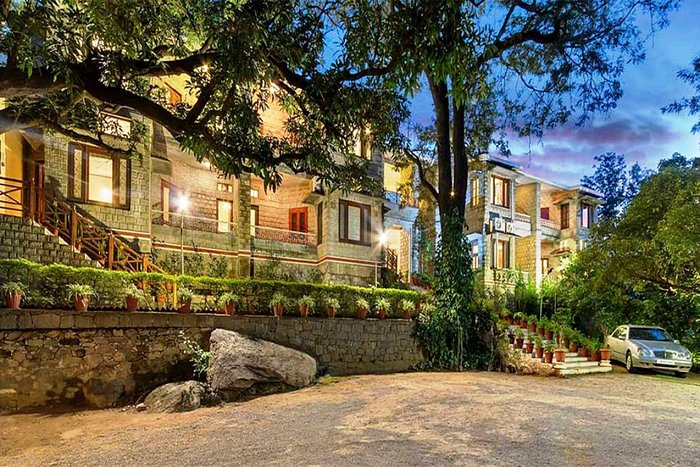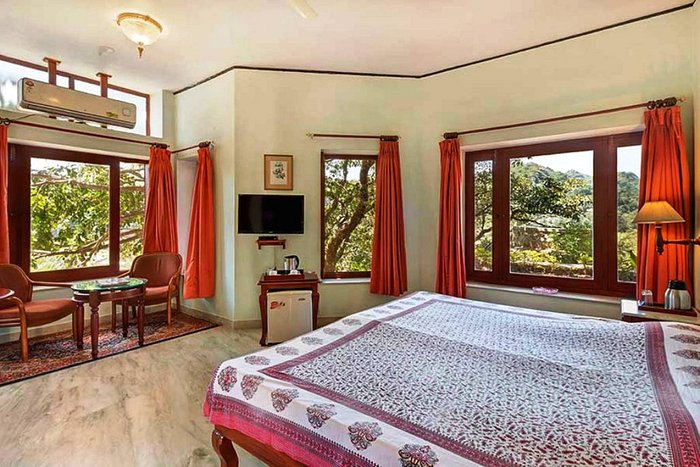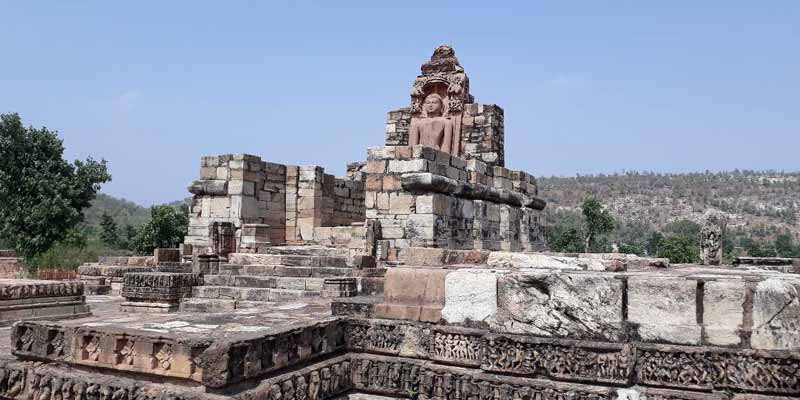Kesar Bhawan Palace

Kesar Bhawan Palace was built in the year 1868 A.D. by His Highness Maharajadhiraj Maharao Umed Singhji of Sirohi.It has been converted into an eco-friendly heritage hotel by Maharaj Daivat Singh of Sirohi whose ancestor Maharao Lumbha conquered the hill of Abu in the year 1311 A.D. and brought the area in the domain of the princely State of Sirohi, which was founded in the year 1206 A.D. by Rao Manning Rai.
Originally built as a residence for the royal family of Jodhpur, Kesar Bhawan Palace dates back to the late 19th century. Its architectural marvel reflects the intricate craftsmanship and opulence characteristic of the era. Over the years, the palace has undergone meticulous restoration to preserve its heritage while integrating modern amenities to ensure a comfortable stay for guests.

Luxurious Accommodations
Upon entering Kesar Bhawan Palace, guests are transported to an era of regal splendor and refinement. The palace boasts a range of luxurious accommodations, including exquisitely decorated rooms and suites that offer panoramic views of the surrounding landscape. Each room is meticulously designed to provide the perfect blend of comfort and sophistication, with modern amenities seamlessly integrated into the traditional decor.
Immerse in Royal Hospitality
Beyond its lavish accommodations, Kesar Bhawan Palace invites guests to immerse themselves in a world of royal hospitality and indulgence. From personalized butler service to curated dining experiences featuring authentic Rajasthani cuisine, every aspect of the guest experience is meticulously crafted to exceed expectations.
Exploring Spiritual Tranquility: Neelkanth Temple, Mount Abu

Nestled amidst the scenic beauty of the Aravalli Range in Mount Abu, Rajasthan, Neelkanth Temple stands as a serene sanctuary of spirituality and architectural splendor. This ancient Hindu temple, dedicated to Lord Shiva, beckons pilgrims and tourists alike to experience the divine tranquility and timeless beauty it offers.
A Sacred Oasis
Believed to have been constructed during the 11th century, Neelkanth Temple is steeped in mythology and history. According to local legends, it is said that Lord Shiva himself visited this sacred site, earning it the name “Neelkanth,” which translates to “Blue Throat,” a reference to the deity’s depiction with a blue throat after consuming poison during the churning of the ocean.
Architectural Marvel
The temple’s architecture is a testament to the exquisite craftsmanship of ancient artisans. Built in the traditional Nagara style of temple architecture, Neelkanth Temple features intricately carved pillars, ornate ceilings, and beautifully sculpted statues depicting various Hindu deities. The serene ambiance of the temple, coupled with its stunning surroundings, makes it a captivating destination for spiritual seekers and architecture enthusiasts alike.
Spiritual Significance
Devotees flock to Neelkanth Temple throughout the year to seek the blessings of Lord Shiva and offer prayers for health, prosperity, and spiritual fulfillment. The temple’s sanctum sanctorum houses a sacred lingam, representing the divine presence of the Lord. Visitors are enveloped in a sense of peace and reverence as they participate in the temple’s rituals and meditate in its tranquil surroundings.
Experience Divine Serenity
A visit to Neelkanth Temple offers not only a glimpse into the rich spiritual heritage of India but also an opportunity for introspection and inner peace. Surrounded by lush greenery and panoramic views of the Aravalli hills, the temple provides a serene retreat from the hustle and bustle of everyday life. Whether you’re a devout pilgrim or a curious traveler, Neelkanth Temple promises an enriching and soul-stirring experience.
Plan Your Visit
Neelkanth Temple is conveniently located in Mount Abu, making it easily accessible to visitors from across the region. The temple is open to devotees and tourists throughout the day, allowing ample time to explore its sacred grounds and soak in its divine ambiance.
